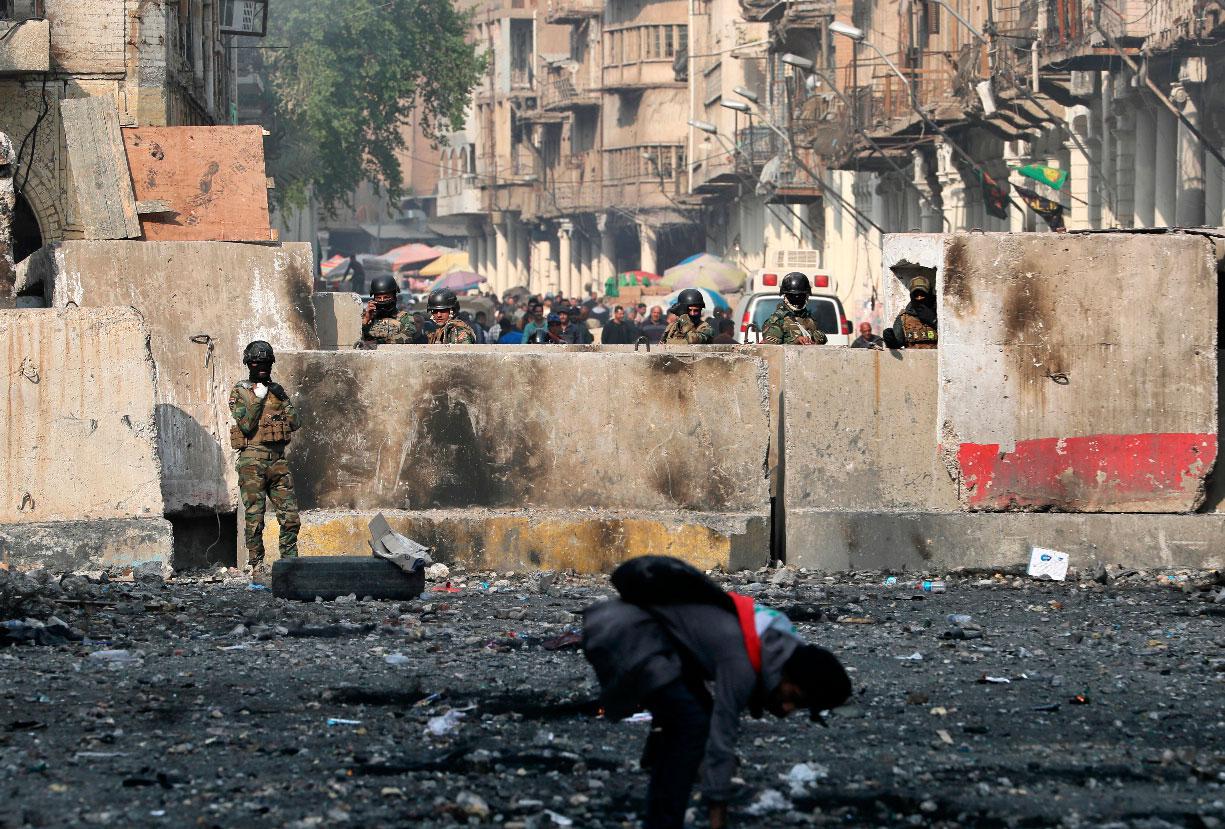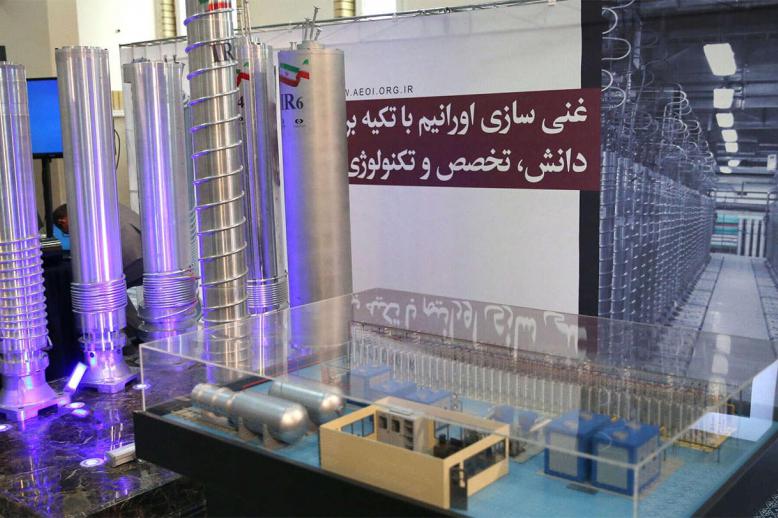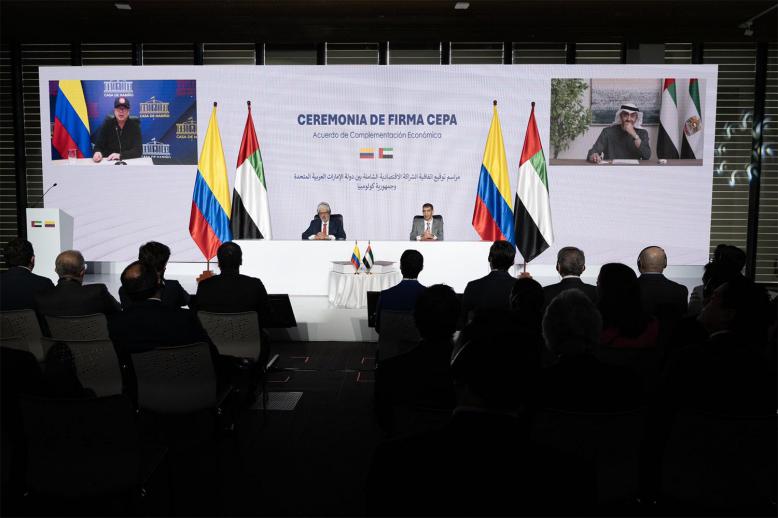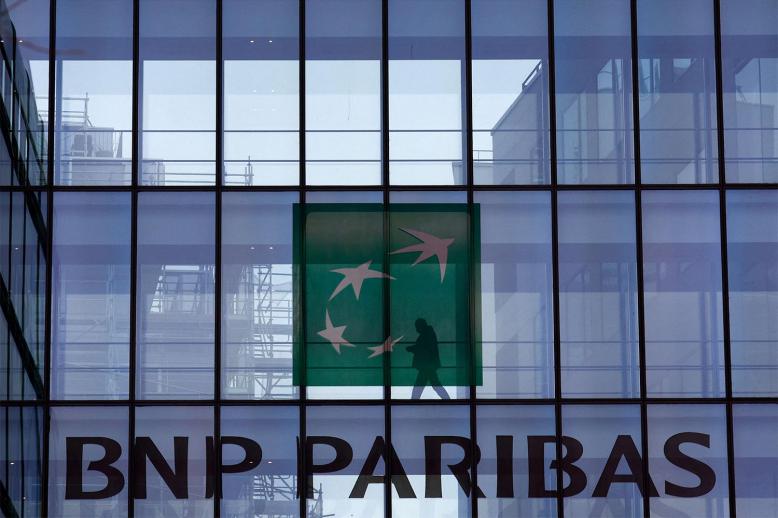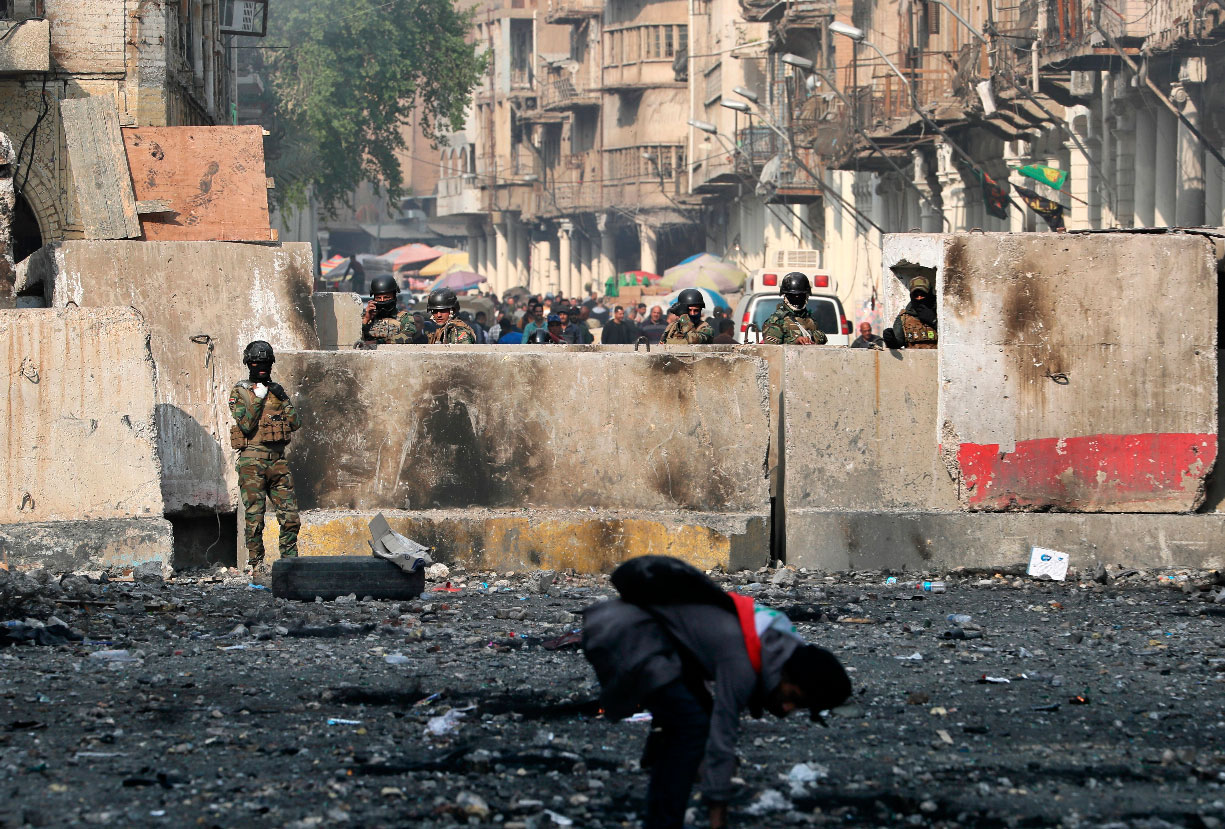Iraq sets up military 'crisis cells' after Iranian consulate burns
NAJAF - Iraqi security forces cracked down on anti-government protesters in the strife-torn south Thursday, leaving 15 people dead in a bloody escalation hours after the torching of an Iranian consulate.
The protests, which began in Baghdad on Oct. 1 and have spread through southern cities, are the most complex challenge facing the Shiite-dominated ruling class that has controlled state institutions and patronage networks since the 2003 US-led invasion that toppled long-time Sunni ruler Saddam Hussein.
Protesters are mostly unemployed Shiite youth who demand the departure of Iraq's entire political elite, who they see as being backed by - and subservient to - neighbouring Iran.
Late Wednesday protesters burned down the Iranian consulate in the city of Najaf, yelling "Victory to Iraq!" and "Iran out!", in an attack condemned by Tehran which voiced its "disgust". It was the strongest expression yet of the anti-Iranian sentiment of Iraqi demonstrators.
Prime Minister Adel Abdel Mahdi immediately ordered military chiefs to deploy in several restive provinces to "impose security and restore order", the army said.
On Thursday, reinforcements were sent to his birthplace of Nassiriya, a southern city that has been a protest hotspot for weeks.
Security forces violently cleared sit-ins from two bridges, shooting dead at least 15 protesters and leaving more than 150 wounded, most of them by live fire, medics and security sources said.
Demonstrators retaliated by setting a police station on fire.
The latest violence brought the death toll since early October to nearly 370, with over 15,000 wounded according to an AFP tally, as authorities are not releasing updated or precise figures.
Iran voices 'disgust'
The provincial governor in Nassiriya, Adel al-Dakhili, blamed the crackdown on Jamil Shummary, the commander sent to lead the new "crisis cell" in the city.
"The prime minister should remove General Jamil Shummary, who has failed to maintain security in the province," Dakhili said in a statement.
He threatened to quit if Shummary was not removed and urged the premier to launch an investigation to determine who was responsible for Thursday's deaths.
Shummary was the military commander of the southern port city of Basra when demonstrations there were brutally suppressed in the summer of 2018.
Curfews have been ordered both in Nassiriya and the holy Shiite city of Najaf, where streets were largely deserted the day after protesters stormed the Iranian consulate.
They had set tyres and other items ablaze around the consulate, sending tall flames and thick clouds of smoke into the night sky.
They also broke into the building itself, which had been apparently evacuated by its Iranian staff.
Demonstrators across Iraq have blamed powerful eastern neighbour Iran for propping up the Baghdad government which they are seeking to topple.
Tehran demanded Iraq take decisive action against the protesters, with foreign ministry spokesman Abbas Mousavi condemning the attack.
"Iran has officially communicated its disgust to the Iraq ambassador in Tehran," he said in comments carried by Iran's state news agency IRNA.
Sit-ins persist
Iran's consulate in Iraq's other holy city of Karbala was targeted earlier this month, and security forces defending the site shot four demonstrators dead at the time.
Iran and Iraq have close but complicated ties.
The two countries fought a devastating 1980-1988 war, but Iran now has significant sway among Iraqi political and military leaders.
Top Iranian commander Qasem Soleimani, Tehran's pointman on Iraq, has held several meetings in Baghdad and Najaf to convince political factions to close rank around the government of Abdel Mahdi.
Those meetings previously paved the way for a brief crackdown in Baghdad and the south late last month but the protest movement had proved resilient.
Sit-ins, road closures and street marches have kept public offices and schools shut across many of Iraq's southern cities for weeks.
On Thursday, protesters kept up their sit-ins in Kut, Amara and Hilla - all south of the capital - despite a notably larger security presence.
In the oil-rich port city of Basra, most government offices reopened but schools remained closed as security forces deployed in the streets.
Iraq is OPEC's second-largest crude producer and the oil exported through Basra's offshore terminals funds more than 90 percent of the government's budget.
Protesters have accused the ruling elite of embezzling for personal gain state funds that are desperately needed to repair failing public services and rehabilitate schools.
Corruption is rampant in Iraq, ranked the world's 12th most graft-ridden country by Transparency International.
A government probe found that $450 billion in public funds had been lost to graft, fake contracts and so-called ghost employees since 2003.
One in five Iraqis lives in poverty and youth unemployment stands at 25 percent, according to the World Bank.

